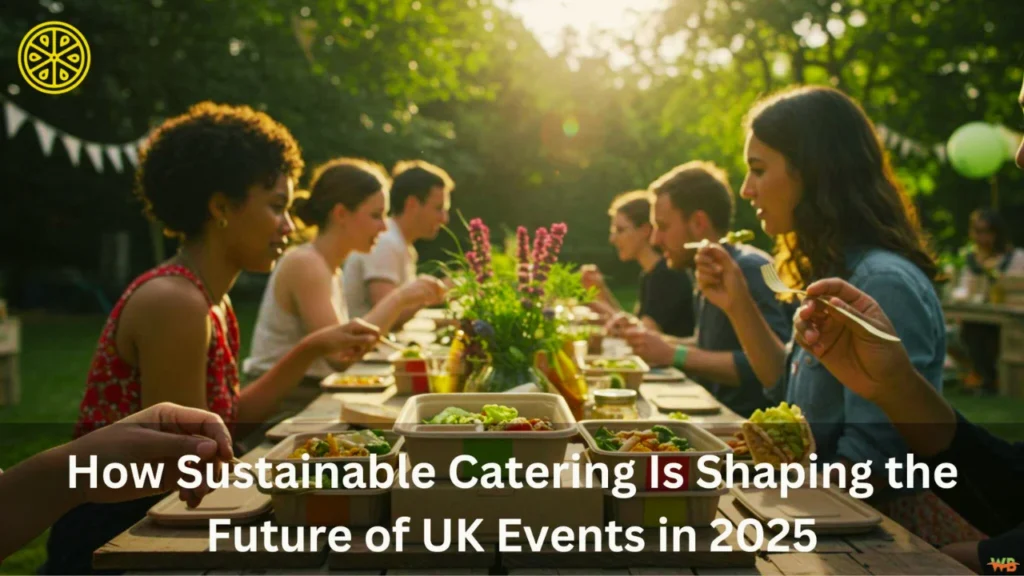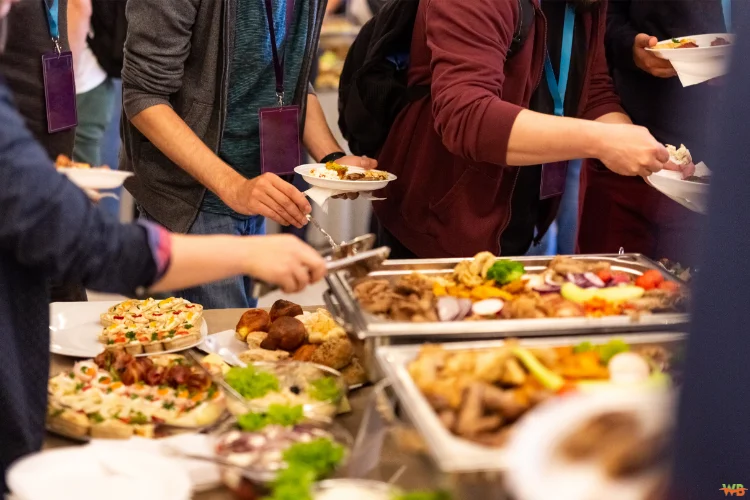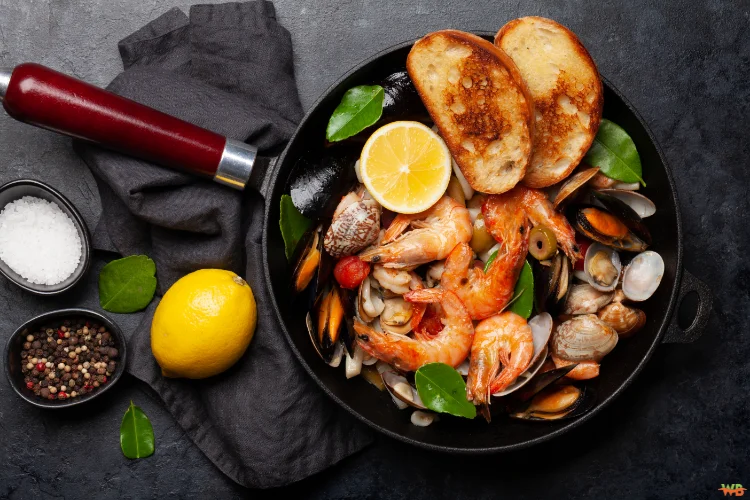
With growing awareness about environmental issues and the push for sustainability, event planning is experiencing a significant shift. If you’re organizing an event in 2025, you might find yourself wondering how to make it more eco-friendly. Is it really possible to serve delicious food while minimizing waste, sourcing ethically, and reducing your carbon footprint? How can you ensure your event’s catering aligns with your environmental values?
Sustainable catering has become a key focus for UK top catering companies, revolutionizing how food is prepared, served, and consumed at events. Not only is sustainable catering better for the planet, but it can also enhance the guest experience, contribute to healthier eating, and offer creative solutions that align with modern values. In this article, I’ll explore how sustainable catering is shaping the future of UK events in 2025, and why it should be at the forefront of your event planning decisions.
Why Sustainable Catering is the Future of Events in the UK
In 2025, sustainability is no longer just a trend—it’s a necessity. When it comes to event catering, the environmental impact of food production, waste management, and sourcing is gaining more attention. As the demand for eco-friendly practices rises, top catering companies are stepping up their game by offering sustainable food options that align with ethical and environmental standards.
Choosing sustainable catering doesn’t just benefit the planet—it also enhances the overall event experience. When you opt for sustainable catering services, you’re telling your guests that you care about their well-being, the environment, and future generations. It’s not only about serving great food; it’s about making responsible choices that have a positive ripple effect beyond the event itself.
1. Sustainable Sourcing: The Key to Responsible Catering
One of the most important aspects of sustainable catering is sourcing ingredients responsibly. This means working with suppliers who prioritize local, seasonal, and organic produce, and who follow ethical practices in the farming and fishing industries.
- How Catering Companies are Adapting: Many top catering companies in the UK are now partnering with local farmers, fishermen, and food artisans to ensure that the ingredients used in their dishes are sustainably sourced. This approach cuts down on transport emissions and provides economic support to nearby communities.
At a recent event I attended, the catering team highlighted that all of their produce was locally sourced from organic farms around the UK. Not only did the food taste fresher, but it also gave me a sense of connection to the land and the people who produced it. This shift towards sustainable sourcing is becoming the norm for leading catering services.
2. Reducing Food Waste: Serving Only What’s Needed

Food waste is a major issue at large events. When you serve excessive amounts of food, chances are that much of it ends up in the bin. Sustainable catering practices aim to minimize waste by planning portion sizes carefully and utilizing leftovers.
- How Catering Companies are Adapting: Sustainable caterers are now implementing strategies to reduce food waste, such as offering perfectly portioned meals and using up leftovers in creative ways. Some companies even donate leftover food to charities, ensuring that nothing goes to waste.
I was impressed when I attended an event last year where the catering team had a precise estimate of how much food they would need, eliminating the typical overproduction. Any leftover food was packaged and given to local food banks, making the event both successful and socially responsible.
3. Plant-Based Options: Catering to a Healthier Future
Plant-based diets are not only good for personal health, but they also have a significantly lower environmental impact than animal-based products. Reducing the consumption of meat and dairy helps conserve water, reduces greenhouse gas emissions, and decreases the environmental strain caused by livestock farming.
- How Catering Companies are Adapting: Many catering companies in London are now offering plant-based options as part of their regular menus. These meals are not only delicious but also cater to various dietary preferences, including vegan, vegetarian, gluten-free, and dairy-free options.
During a recent corporate event, I was pleasantly surprised to find that the plant-based dishes were as flavorful and satisfying as the meat options. From savory lentil burgers to roasted vegetable platters, the variety of plant-based choices impressed everyone in attendance, and it didn’t feel like anything was lacking. This is a great example of how sustainable catering can offer diverse, inclusive options that are both tasty and better for the planet.
4. Eco-Friendly Packaging: A Step Towards Zero Waste
In 2025, eco-friendly packaging is no longer a luxury—it’s an expectation. Plastic waste, especially from single-use items like cutlery, plates, and cups, is a major environmental issue at events. Sustainable catering companies are now using biodegradable, compostable, or recyclable materials instead of plastic, ensuring that less waste ends up in landfills.
- How Catering Companies are Adapting: Some of the top catering companies in the UK have committed to using only eco-friendly packaging for their events. Whether it’s serving food in bamboo boxes or using compostable plates and cutlery, these changes significantly reduce the environmental footprint of an event.
At an office luncheon I recently attended, all the catering was served in biodegradable containers, and the drinks were in paper cups with plant-based lids. The effort made by the catering team to minimize waste didn’t go unnoticed by the guests, and it reinforced the company’s commitment to sustainability.
5. Sustainable Seafood: Protecting Marine Life

Sustainability in catering isn’t just about sourcing land-based ingredients; it also extends to seafood. Overfishing is a major problem worldwide, and sourcing seafood from sustainable fisheries is a crucial aspect of responsible catering.
- How Catering Companies are Adapting: Many of the top catering companies in the UK now offer sustainably sourced seafood, partnering with suppliers who follow best practices in fishing and aquaculture. This ensures that the seafood on your menu is not only delicious but also contributes to the preservation of marine ecosystems.
I’ve attended several events where sustainable seafood was featured on the menu, from responsibly farmed salmon to sustainably caught prawns. Knowing that the seafood was ethically sourced added an extra layer of satisfaction to the meal, making the event feel more conscientious and responsible.
6. Seasonal Menus: Eating in Harmony with Nature
Serving seasonal food is one of the easiest ways to promote sustainability. Seasonal ingredients are fresher, more flavorful, and typically more affordable because they don’t require long-distance transportation or artificial growing methods.
- How Catering Companies are Adapting: Catering companies are now focusing on creating menus that reflect what’s in season, making use of the freshest ingredients available at the time of the event. Seasonal menus are also an excellent way to showcase local produce and create dishes that reflect the changing times of the year.
At an autumn corporate event, the catering team offered a beautiful menu that featured butternut squash soup, wild mushroom risotto, and roasted root vegetables. The seasonal ingredients tasted so fresh and vibrant, and the menu perfectly captured the essence of the season. Using seasonal produce is not only better for the environment but also enhances the quality of the food.
7. Interactive Catering: Engaging Guests with Eco-Friendly Options
Interactive catering is a fun and engaging way to serve food, but it can also be sustainable. Whether it’s a live cooking station, a salad bar, or a DIY taco setup, guests love the opportunity to personalize their meals.
- How Catering Companies are Adapting: Catering companies are now incorporating interactive food stations into their services, using eco-friendly materials and sustainable ingredients to create unique dining experiences. These interactive stations also help reduce food waste by offering portion control and minimizing leftover food.
I attended a team-building event where guests could create their own sushi rolls. The catering team used organic ingredients and minimal packaging, making the experience both interactive and eco-friendly. It was a fun, hands-on way to engage guests while ensuring sustainability was at the forefront of the experience.
Conclusion
Sustainable catering is quickly becoming a major force in shaping the future of UK events in 2025. With an increasing focus on environmental responsibility, UK top catering companies are leading the way by providing sustainable, eco-friendly food options that enhance the event experience while minimizing waste. From sustainably sourced ingredients and plant-based meals to zero-waste packaging and interactive catering, there are countless ways to incorporate sustainability into your next event.
Choosing sustainable catering not only benefits the environment but also provides your guests with an experience that reflects your commitment to the planet. As we move towards 2025, it’s clear that sustainable catering is no longer a choice—it’s the future of event dining.

